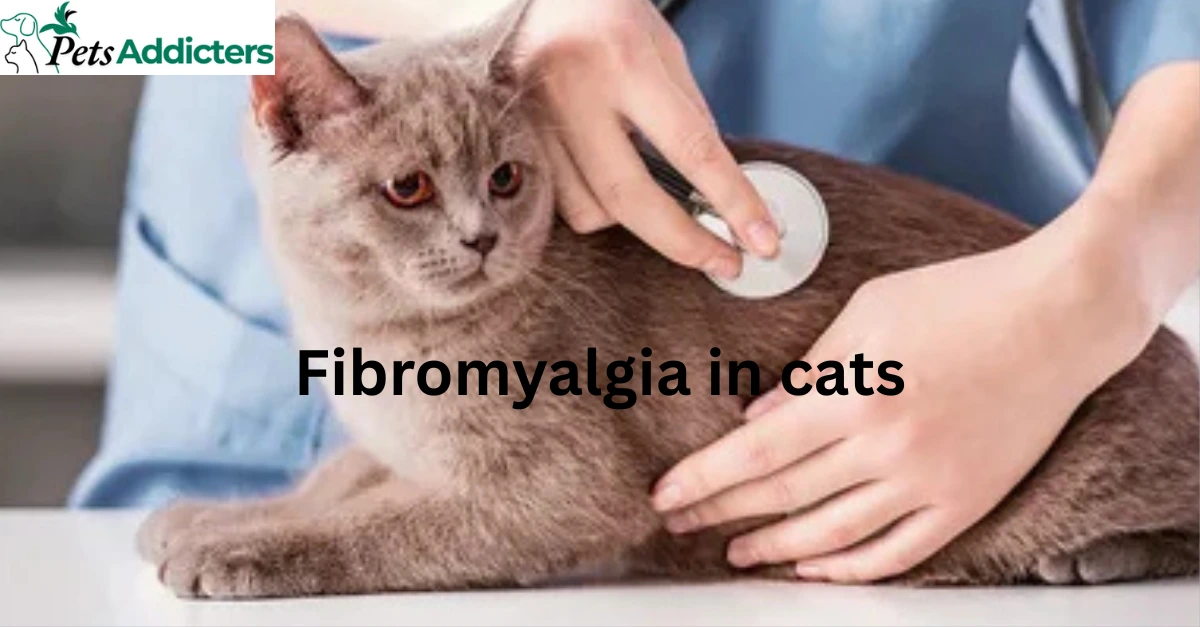If you’ve ever had a cat that tends to get “off” unexpectedly like they’re sore, skittish, or just themselves anymore you might have been wondering, “Can cats develop fibromyalgia like humans do?” Here’s what I think. it’s one of those types of topics people never really talk about, but it’s actually really important if you have an older or sensitive cat.
So, let’s talk about fibromyalgia in cats, what it looks like, and the ways that you can get your fur baby feeling better.
You won’t believe me, but it’s not that cats actually get fibromyalgia like humans do, but they can get something very much the same persistent muscle tenderness and pain. Vets also call it sometimes Feline Hyperesthesia Syndrome (FHS) or chronic myofascial pain. It’s basically the cat version of chronic muscle and nerve pain.
Ever catch your cat out of the blue twitch when you touch them, or bite at their back as if there’s something running underneath? That could be FHS and it’s more common than you’d think!
Common Signs of Fibromyalgia-Like Symptoms in Cats
These are the ones to look out for:
- Sudden skin twitching or rippling across the back
- Excessive grooming or biting themselves unnecessarily
- Sudden sensitivity when you touch specific spots
- Restlessness or hiding excessively
- Random episodes of energy or anger
- Crying or winching when picked up
Ring a bell? Well, it might not be “just a mood.” These could be signs of chronic pain or inflammation of the nerves, which is what fibromyalgia does to people — persistent pain that comes and goes.
What Causes Fibromyalgia in Cats
That’s the mystifying part. Why isn’t 100% clear, just as with humans. But many vets believe it’s a mixture of:
- Stress or anxiety (yes, cats stress out too!)
- Neurological problems
- Past injuries or trauma
- Muscle or nerve inflammation
If your cat’s had a traumatic experience — say, surgery, injury, or even emotional stress — their body might react with pain signals that just won’t stop.
How to Help a Cat With Fibromyalgia Symptoms
So, what to do Here’s what I’d recommend to any cat parent pal — start with comfort and care.
Gentle Touch Only: Avoid rough petting or picking up your cat too much if they seem tender.
- Soft Bedding: Give them a warm, soft place to rest heated cat beds are great for sore muscles.
- Reduce Stress: Reduce pressure and abrupt changes. Prolonged pain cats need quiet spaces.
- Vet Check-Up: Always talk to your vet first. They can suggest minor pain relievers, anxiety medication, or even feline acupuncture (yes, really!).
- Play Gentle: Encourage slow, gentle play to keep their muscles moving no big jumps or hard wrestling.
Sometimes, minimal changes to everyday make the biggest difference.
Natural, Feline Fibromyalgia Support
If you’re into holistic care like me, you’ll love this — some cat owners swear by omega-3 supplements, CBD oil (vet-approved only), and gentle massage therapy. But remember: always check with your vet before trying anything new.
Even adding a cozy heating pad or a calm diffuser like Feliway can reduce tension and help your cat relax.
TheTakeaway
Here’s what I think cat fibromyalgia (or something like that) exists in terms of how it happens to them, but maybe different from what happens in people. If your cat has been generally being overly sensitive, sore, or cranky of late, do not dismiss it. They might be sending you a signal.
Give them patience, warmth, and a double dose of love. You’ll be amazed at how much comfort your being can provide.
So, what do you say? Have you ever noticed your cat showing any of these signs? Leave a comment or talk with your vet because with chronic pain, sooner is better for a happier, purr-ier life.
Can cats really have fibromyalgia?
Cats don’t have fibromyalgia exactly like humans, but they can suffer from chronic pain that looks very similar.
What are the signs of fibromyalgia in cats?
Watch for twitching skin, overgrooming, sensitivity to touch, restlessness, and random bursts of energy or aggression.
How do you treat fibromyalgia in cats?
Your vet may recommend gentle pain relief, stress management, soft bedding, and a calm environment.

